Calls for urgent action to address surface weed ‘choking’ Lincolnshire river
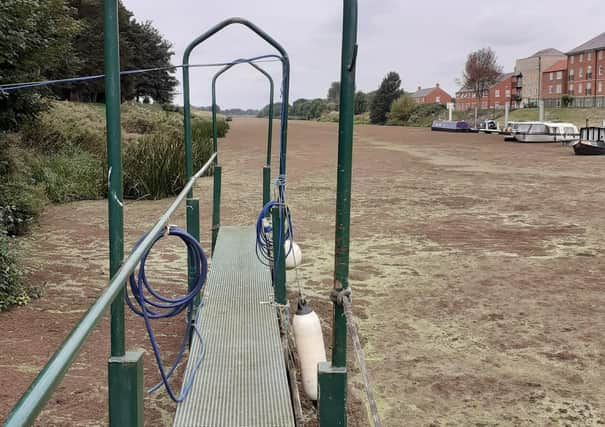

The green-brown mass has now become a danger according to some - with a number of sports and recreational activities being cancelled.
Efforts are being made by the Canal River Trust to clear the weed - but with areas of the waterway still covered, many are calling for more to be done to address the problem.
Advertisement
Advertisement
Rowers, anglers, boaters and paddle boarders are among those affected - while some have also reported fish deaths, and swans and otters struggling to swim through the weed.
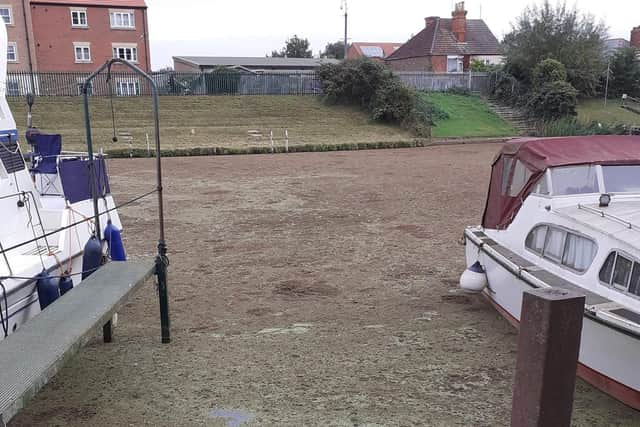

Local angler Ady Paul told the Standard: “It’s just a carpet of green for as far as the eye can see - and it’s been like it for weeks.
“I saw that somebody’s dog spotted a stick on top of the river weed and ran out into the water possibly thinking it was grass. What happens if a child does that? There could be a fatality if nothing is done to resolve this.
“As an avid angler I find it disgraceful that I’m expected to buy a licence but cannot fish local waters because of the current issues.”
Advertisement
Advertisement
Phil May who runs Yellowbelly SUP School for paddle boarding had to cancel his lessons last week because of the conditions on the water.
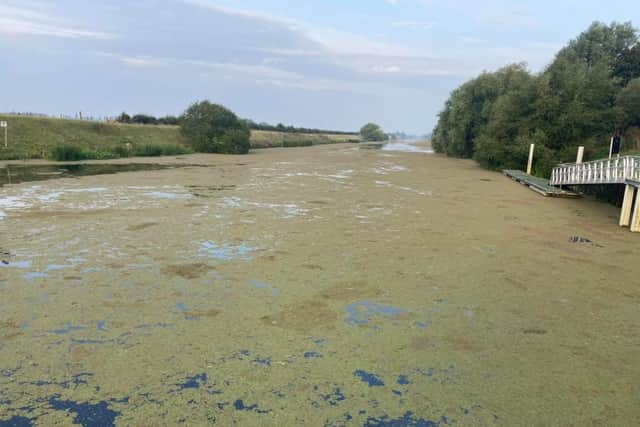

He said: “This problem is now not only choking our river, but it’s choking our recreation space,” he said. “I’m disappointed that resources aren’t available to keep our waterways clear and functional.”
Phil who has been teaching paddle boarding in Boston for four years, said the thick blanket of weed means they can’t see hazards below the water’s surface.
“It makes it dangerous and very tricky to navigate with the weed getting tangled around the paddle boards fins,” he said, adding: “This is the worst year I’ve known it.”
Advertisement
Advertisement
Boston Rowing Club also expressed concerns about the issue, tweeting: “The state of the River Witham this year has been the worst I can remember. Not only must this invasive surface weed be causing ecological problems it is also damaging businessess and clubs along its course.”
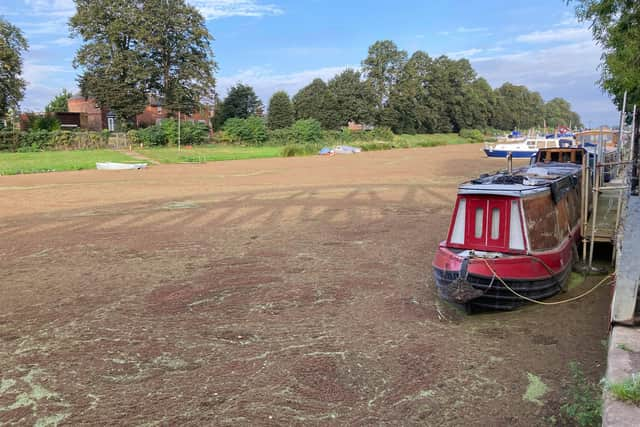

Another commented via Facebook: “It’s an absolute disgrace - the money boat owners are charged and they can’t even use the river now - and it’s been like this for weeks.”
The green layer is said to be a combination of duckweed, which multiplies in hot weather, and an invasive plant species called azolla. This has been affecting the stretch of the River Witham from Boston to Lincoln since the summer.
The Canal and River Trust (CRT), which is responsible for the waterway, says it has been trying to combat the problem in a number of ways.
Advertisement
Advertisement
A spokesman for the trust said: “The River Witham can be prone to weed, due to nutrient run-off from surrounding agricultural land but the amount of weed this year is unusually high and we’ve never really seen it this bad.
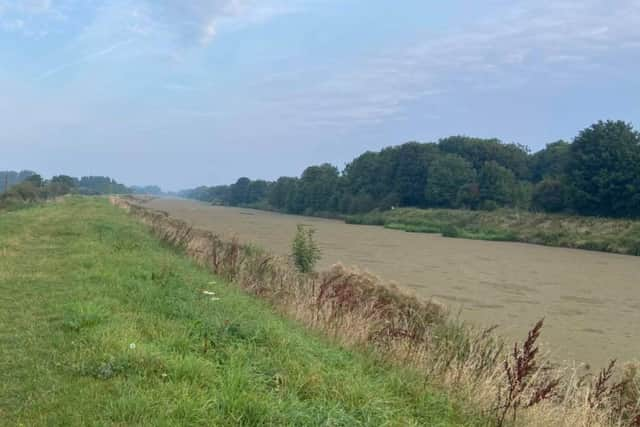

“We really sympathise with boaters, it must be really frustrating for them.
“We’re working to remove the duckweed which has entered the river from local drains and surrounding land – we don’t control these so don’t have any influence on what enters the river, we’re just trying to clear it as quickly as possible to help boaters.
“The duckweed is unusually bad this year and so we’ve added an additional weed boat on the river and are physically removing around 100 tonnes of weed each day. We’re also using Boston Lock to help flush the weed along the river.
Advertisement
Advertisement
“The weed we’re seeing on the River Witham at Boston at the moment is a mix of duckweed and Azolla water fern -and to tackle the latter we’ve put 3,000 weed-munching weevils into the water.
Azolla is non-native and a voracious grower which can multiply rapidly, covering the surface of a waterway with thick mats in a matter of weeks. This reduces light and oxygen levels in the water, killing fish and other wildlife, as well as affecting how boaters and anglers can use the canal.
“The weevils will breed to produce very large populations which as a community will feed extensively, until sections of Azolla start to die and sink, where it is further broken down by other feeders. Given time to reproduce and spread throughout a mat of Azolla, the weevil is capable of clearing entire lakes or canals within a matter of weeks. The weevils only eat the azolla and so don’t cause any environmental problems.
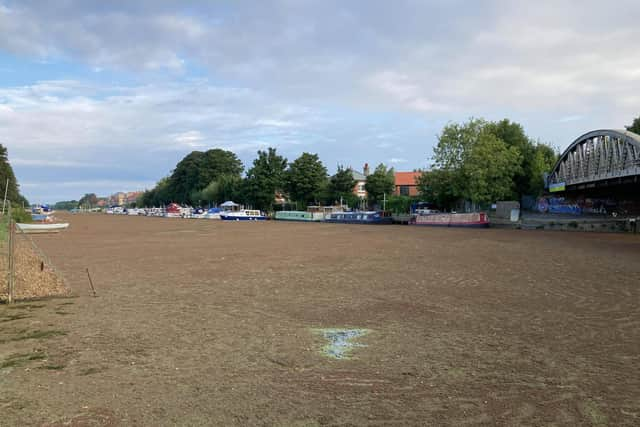

“We’re also working to flush the weed through the system and are using Boston Lock to do this. Our ownership ends at Boston Lock though so we’ve also been speaking to the Environment Agency to ask that they use their sluices to flush the weed out to sea. Flushing is by far the quickest and most effective way of tackling the problem so we’re in constant dialogue with the EA to encourage them to open their sluices for longer and more frequently.”
The Standard has asked the EA for a comment.